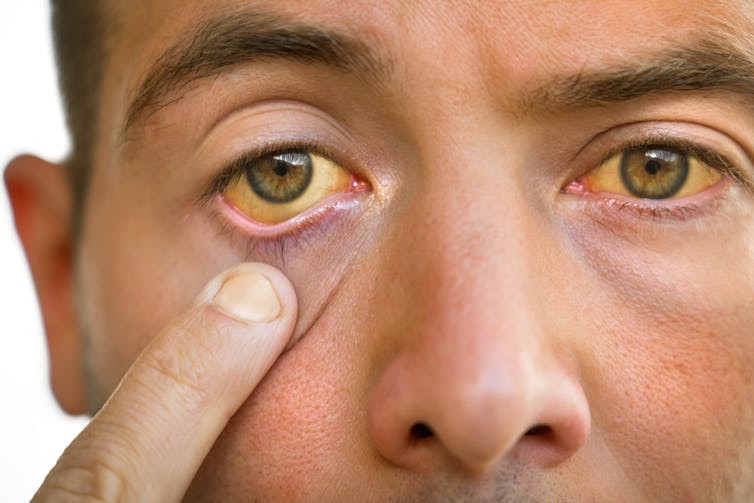What happens to your liver when you quit alcohol / Ashwin Dhanda – Corridor del Henares News

According to Greek mythology, Zeus punished Prometheus for giving fire to people. He put Prometheus in chains and had an eagle feast on his liver. Every night the liver grew again. And every day the eagle returned to the feast. Really, can the liver grow back?
The liver is the largest internal organ of the human body. It is essential for hundreds of bodily processes, including the breakdown of toxins such as alcohol. And since it is the first organ that comes into contact with the alcohol we drink, it is not surprising that it is the most susceptible to its effects. However, we must not forget that other organs such as the brain and heart can also be damaged as a result of long-term excessive drinking.
As a liver specialist, I treat people with alcohol-related liver disease every day. It is a spectrum of diseases that ranges from the accumulation of fat in the liver (fatty liver disease) to scarring (cirrhosis) and usually does not cause symptoms until the damage has reached an advanced stage.

Pormezza/Shutterstock.
Fat and scars
First, alcohol makes the liver fatty. This fat causes liver inflammation. It reacts by attempting to heal and forming scar tissue. If left unchecked, the entire liver can turn into a network of scars with small islands of “good” liver in between: cirrhosis.
In the later stages of cirrhosis, when the liver fails, people may become yellow (jaundice), swollen with fluid, and feel drowsy and confused. This is serious and can even be fatal.
Most people who regularly drink more than the recommended limit of 14 units of alcohol per week (about six pints of regular strength beer (4% ABV) or about six glasses of medium strength (175ml) wine (14% ABV)) will have fatty liver. And they will eventually develop scarring and cirrhosis of the liver.

Good news
Luckily, we have good news. In people with fatty liver disease, after just two to three weeks of quitting alcohol, the liver can recover and return to looking and functioning as if it were new.
People with liver inflammation or mild scarring show a noticeable reduction in liver fat, inflammation, and scarring even seven days after quitting alcohol. Quitting alcohol for a few months will allow the liver to recover and return to normal.
For alcoholics with more severe scarring or liver failure, abstaining from alcohol for several years reduces the likelihood of worsening liver failure and death. However, people who drink heavily may have a physical dependence on alcohol, and abruptly stopping it can cause withdrawal symptoms.
In mild form, it causes tremors and sweating. But if the illness is severe, it can cause hallucinations, seizures and even death. This is why alcoholics are not advised to quit drinking suddenly: they should consult a doctor to safely quit smoking.
Other benefits
Quitting alcohol also has positive effects on sleep, brain function and blood pressure.
Quitting alcohol over the long term also reduces the risk of developing some types of cancer (including liver, pancreatic and colon cancer), as well as the risk of heart disease and stroke.
However, alcohol is not the only cause of poor health. Quitting smoking has many health benefits, but it is not a panacea. It should be considered as part of a healthy lifestyle, including a balanced diet and regular exercise.
So, returning to the question posed by the Prometheus myth, the liver has an amazing ability to recover from damage. But it cannot grow back as new if it has already been seriously damaged.
If we stop drinking and are left with only a fatty liver, it can quickly return to normal. If your liver is already scarred (cirrhosis), stopping alcohol will allow it to heal and improve its function, but will not reverse all the damage already done.
If you want to take care of your liver, don’t drink alcohol. But if you do, drink in moderation and abstain from alcohol two to three days a week. This way, you don’t have to rely on the magical self-healing power of your liver to stay healthy.![]()
Ashwin Dhanda He is an assistant professor in the Department of Hepatology at University of Plymouth.
This article was originally published on The Conversation.